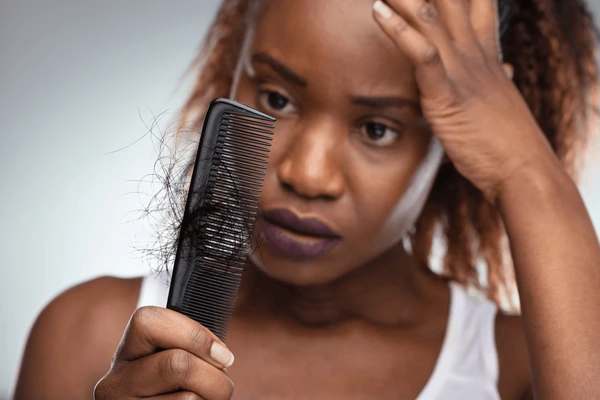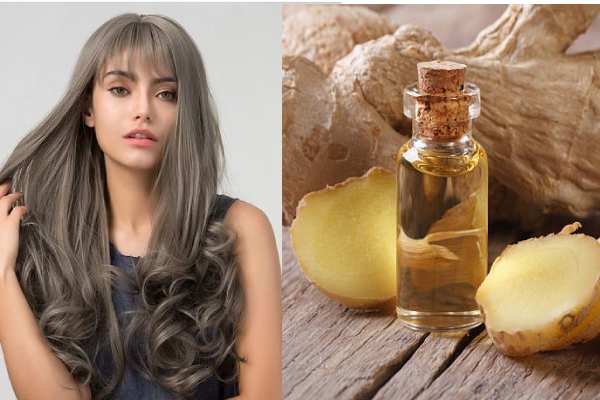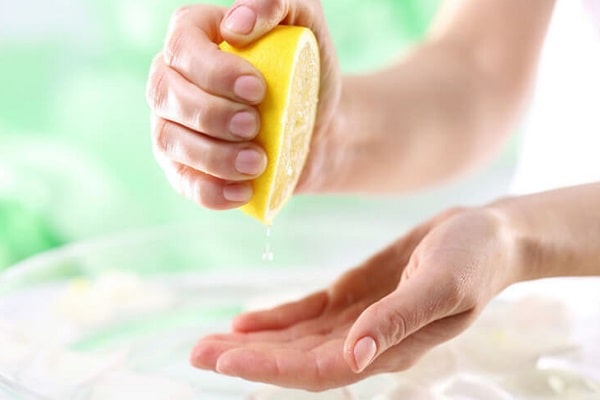The Best Vitamin For Hair, Nails And Skin
Vitamins are of paramount importance for the human body and the lack of them can bring many health problems. They can be acquired both through food, which is the correct way, and through supplementation when there is a medical indication.
In addition, hair, skin and nails need specific vitamins, so find out which ones are most important and how to get them properly.

Why are vitamins important for hair, skin and nails?
Vitamins are important to maintain the appearance and health of these three aspects, when vitamins are lacking, some problems may arise. Are they:
- Loss of hair;
- Dryer and dull hair;
- Difficulty in growth;
- Thin hair;
- Weak nails, breaking easily;
- Difficulty in nail growth;
- Dry skin;
- Skin with cracks and peeling;
- Acne.
These are some of the symptoms felt when the vitamin is deficient and that is why daily consultation is so important. Be aware of the signs your body gives you, often these symptoms can appear at the same time.
What vitamin is good for hair, nails and skin?
Several vitamins are essential and therefore, it is important to consume different types of food, so that only one type of vitamin is ingested and continue with the symptoms above. Find out which ones are the best to bet on and find out where to find each one:
Biotin
Known as vitamin B7 or vitamin H and is important for hair and nail health. This vitamin helps prevent hair loss and nail breakage. In addition, it is also associated with healthy growth of both skin and nails. For the skin, biotin assists in the production of collagen, removing problems such as premature aging.
Where to find biotin?
- Liver
- Egg yolk
- mushrooms
- Legumes (beans, lentils, beans, peas, chickpeas, soybeans and peanuts)
- Whole grains (oats; brown rice; quinoa; amaranth; barley and rye)
- Oilseeds (peanuts and almonds)
Omega 3
It has a very important antioxidant effect for the health of hair, nails and especially the skin. Antioxidants fight free radicals, which destroy collagen. Consumption of omega-3 assists in skin hydration and wards off premature aging.
Where to find omega-3?
- Fish (salmon, sardines and tuna)
- Seafood
- squeaky
- Linseed
- Nuts
Vitamin A
This vitamin acts in the fight against cell degeneration and that is why its consumption is so important. In the hair, preventing hair breakage and helps with elasticity. Already on the nails, it assists in strengthening and growth. Finally, in the skin, vitamin A acts to combat sagging.
Where to find vitamin A?
- Boiled egg
- raw carrot
- Spinach
- Mango
- Pepper
- Plum
- Broccoli
- Melon
- Papaya
- Tomato
- Butter
- milk and derivatives
Vitamin C
It is the most popular when it comes to skin, hair and nail health. And its success is no coincidence, as this vitamin is extremely important for the human body. Vitamin C is an antioxidant and therefore removes the problem of hair loss, strengthens nails and prevents premature aging of cells, preventing the appearance of wrinkles and fine lines.
Where to find vitamin C?
- Orange
- Lemon
- Guava
- Papaya
- Mango
- Pineapple
- Cashew
- Strawberry
- Tangerine
- Broccoli
- Cabbage
- Yellow pepper
What is the best vitamin for hair, nails and skin: Vitamin E
Vitamin E helps in combating premature aging, delaying the appearance of wrinkles and also helps in healing skin injuries. Already in the hair, it stimulates blood circulation and thus promotes hair growth and natural hydration. On nails, this vitamin keeps them stronger.
Where to find vitamin E?
- Peanut
- Almonds
- Nuts
- Sunflower seed
- Wheat germ
- Corn oil
- Soy oil
- Olive oil
- Liver
- Egg yolk
- green leafy vegetables
Read Also: The 10 Best Supplements for Glowing Skin
How to take the vitamins?
The main and most recommended is through healthy eating. A colorful and diverse dish will efficiently deliver all the nutrients the body needs, without the need to spend on supplementation medicines.
In addition, it is also important to combine it with other healthy habits, such as the correct intake of water, physical exercise and avoiding the consumption of industrialized products.
Supplementation can be inserted into everyday life after a medical or nutritional diagnosis. Therefore, if you want to supplement, consult a nutritionist to take tests and find out which vitamin is missing from your body.
Do not try to do the supplementation alone, as excess vitamins can cause intoxication and bring the opposite effect to the desired one.



![How to Make Perfume in Nigeria 2022 [Step-By-Step Guide] 5 How to Make Perfume in Nigeria [Step-By-Step Guide]](https://naijaxtremefashion.com/wp-content/uploads/2022/05/how-to-make-perfume-in-nigeria-img_1-min.jpg)

![How to Start a Fashion Clothing Business in Netherland [2023 Guide] 7 How to Start a Fashion Clothing Business in Netherland](https://naijaxtremefashion.com/wp-content/uploads/2023/09/fashion-clothing-business-in-netherland-IMG_1.jpg)

I don’t think the title of your article matches the content lol. Just kidding, mainly because I had some doubts after reading the article. https://accounts.binance.com/vi/register?ref=WTOZ531Y
I am really impressed together with your writing skills and also with the layout to your weblog.
Is that this a paid subject matter or did you customize it your self?
Either way stay up the nice high quality writing, it’s rare to peer a
great blog like this one nowadays. Instagram Auto comment!
Can you be more specific about the content of your article? After reading it, I still have some doubts. Hope you can help me.
Thank you for your sharing. I am worried that I lack creative ideas. It is your article that makes me full of hope. Thank you. But, I have a question, can you help me?
I don’t think the title of your article matches the content lol. Just kidding, mainly because I had some doubts after reading the article.
Thanks for sharing. I read many of your blog posts, cool, your blog is very good.
Thanks for sharing. I read many of your blog posts, cool, your blog is very good.
Can you be more specific about the content of your article? After reading it, I still have some doubts. Hope you can help me.
Thank you for your sharing. I am worried that I lack creative ideas. It is your article that makes me full of hope. Thank you. But, I have a question, can you help me?
Your point of view caught my eye and was very interesting. Thanks. I have a question for you.
I don’t think the title of your article matches the content lol. Just kidding, mainly because I had some doubts after reading the article.
Your point of view caught my eye and was very interesting. Thanks. I have a question for you.
Can you be more specific about the content of your article? After reading it, I still have some doubts. Hope you can help me. https://accounts.binance.info/register-person?ref=IXBIAFVY
tải 888slot tự hào là thương hiệu giải trí trực tuyến hàng đầu, vận hành dưới sự giám sát nghiêm ngặt của tổ chức PAGCOR. Chúng tôi cam kết duy trì một môi trường cá cược minh bạch và thượng tôn pháp luật. TONY12-30
Thanks for sharing. I read many of your blog posts, cool, your blog is very good. https://accounts.binance.com/bn/register?ref=WTOZ531Y